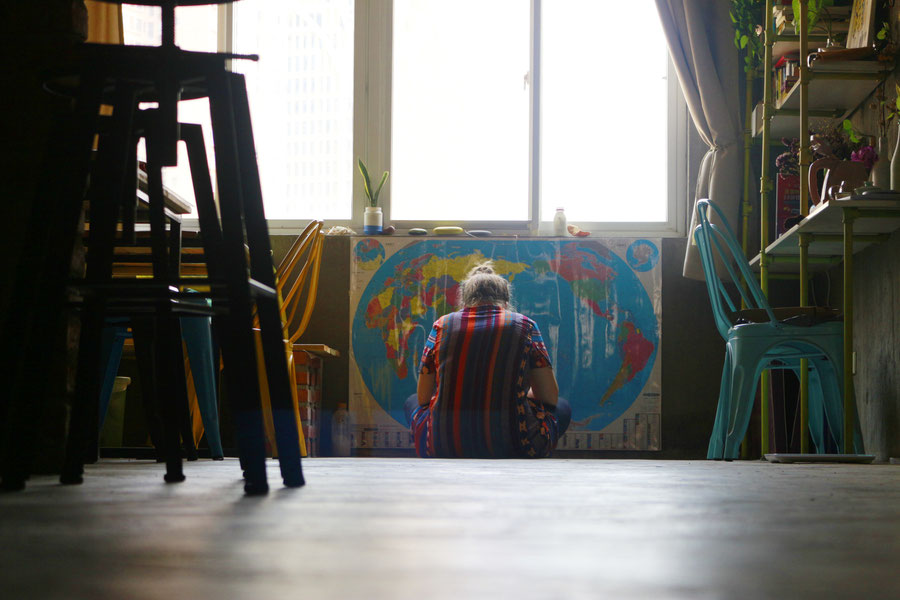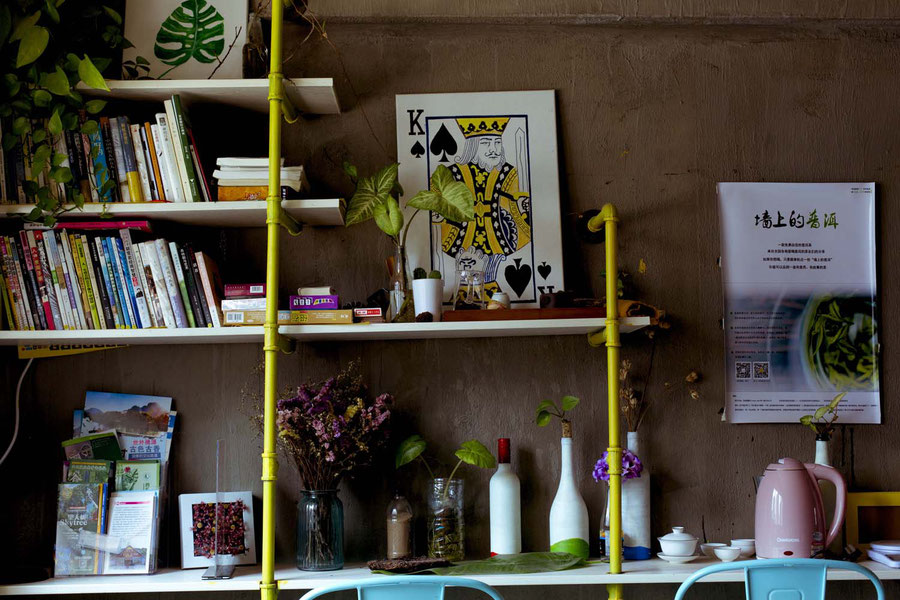One of the biggest gifts that C. and D. give me is the introduction to Chinese tea. I spend some time looking at the world map in the common room while C. prepares it.
Chinese tea is an art form. I just scratch the surface, of course. The people who really want to understand Chinese tea dedicate their life to it. C. is in the middle of her fourth year. She studies all aspects of local tea culture. Tea is like wine here. One knows vintages, mountain slopes and ponders their taste. When I drink "Forest Tea" for the first time, I mainly taste seaweed and fish. My face distorts, and C. laughs. She tells me what I have to do when I have to do it, how long to infuse it and what I should look out for. I quickly realise that every sip, every infusion offers a new taste experience. Soon, I look at the different hues, the dark green that gets paler and paler with each infusion, or the brown that soon turns red and then pink. The more often you pour the tea, the more tender the taste becomes. What appears to be harsh and fishy at the beginning makes room for a sweet component, almost flowery, at the fifth infusion. Unlike the Europeans during wine tastings, one does not speak about the taste experience. My wide-eyed exclamations are tolerated with indulgence and amusement. My hosts don't really know what to do with my ignorance. After all, how else would you drink tea, right?
***
By chance and luck, a travelling businessman asks us to attend one of his appointments. It's bizarre. We walk to a warehouse and are first invited for tea. I don't understand what's going on, but apparently for the first two hours, business is out of the question. We drink tea, talk about life, about myself (I am told) and the products that stand and hang in the room. The interest is subtle, I don't know, are people polite or actually interested? It's hard for me to debunk. We are in a small barren room, off the storerooms. Once the tea has been indulged appropriately, people fan out into the storeroom to look at the goods. I'm not involved in the negotiations taking place in different corners of the complex. Fighting boredom and the firm desire to lie down, I linger patiently between the boxes. They contain everything the popular local minimarkets sell here. Packed biscuits and cakes, dried fruit and sweets.
In the evening we are invited to dinner. According to the traditions of the biggest minority in the city, the Dai, we sit down at the table with seven unknown adults. We make a delicious and very varied meal, which is served on the traditional turntable. For drinks, there is local wine (rather a schnapps) and lemonade. The table is filled to the brim. My favourite? Pineapple rice. There also is fried pig skin, fried chicken, sweet gel in banana leaves, stew, tofu, rice, ... It seems endless. My hosts, both of whom are not drinking alcohol, are amazed that I'm still walking. I chuckle and tell them about beer at home. The pride and staple food of Germany since the Middle Ages. Years of training, I explain to them, has for generations prepared our stomachs to handle large amounts of alcohol. That sounds good as a story, almost as if I actually knew anything about it, but it's just guesswork. I think I've read it somewhere. They look at me like an alien and grin.
***
A few days later, C. and I leave to seek permission from a Dai family to film them while pottering the traditional way. We spend a good three hours drinking tea, but they don't want to give us permission. We don't get a definite yes and no clear no. In the evasion, we have to assemble our rejection. I feel reminded of all the movies in which Chinese villains, drink tea while dominating the world. There's a power game going on here, and I have no idea why and how to play it.



Write a comment